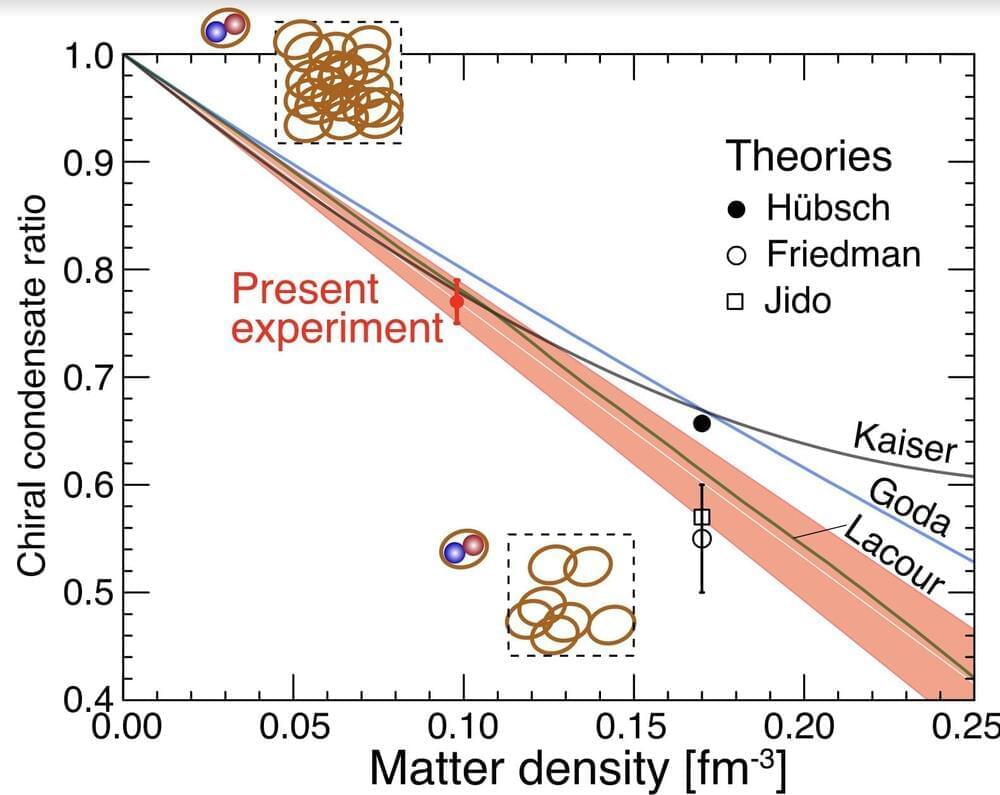The QCD vacuum (i.e., the ground state of vacuum in the quantum chromodynamics regime) is theoretically characterized by the presence of non-zero expectation values of condensates, such as gluons and quark–antiquark pairs. Instead of being associated with a lack of particles and interactions in an empty space, physics theory regards this state as filled with the so-called condensates, which have the same quantum numbers as the vacuum and cannot be directly observed.
While many theoretical physicists have discussed the properties of the QCD vacuum, experimentally validating these theoretical predictions has so far proved challenging, simply because the condensates in this state are elusive and cannot be directly detected. A hint of experimental “observation” can be found in the theoretical predictions of the properties of the QCD vacuum.
Theories predict that the condensate may decrease in the high temperature and/or at a high matter density due to the partial restoration of the so-called chiral symmetry. To prove these theories, some researchers collected measurements during ultra-relativistic, head-on collisions of heavy ions at particularly high temperatures. Other efforts in this area tried to probe properties of the QCD vacuum by measuring so-called “medium effects.” These are essentially effects that alter the QCD vacuum and its structure, prompted by the presence of high matter density such as nuclear matter.
